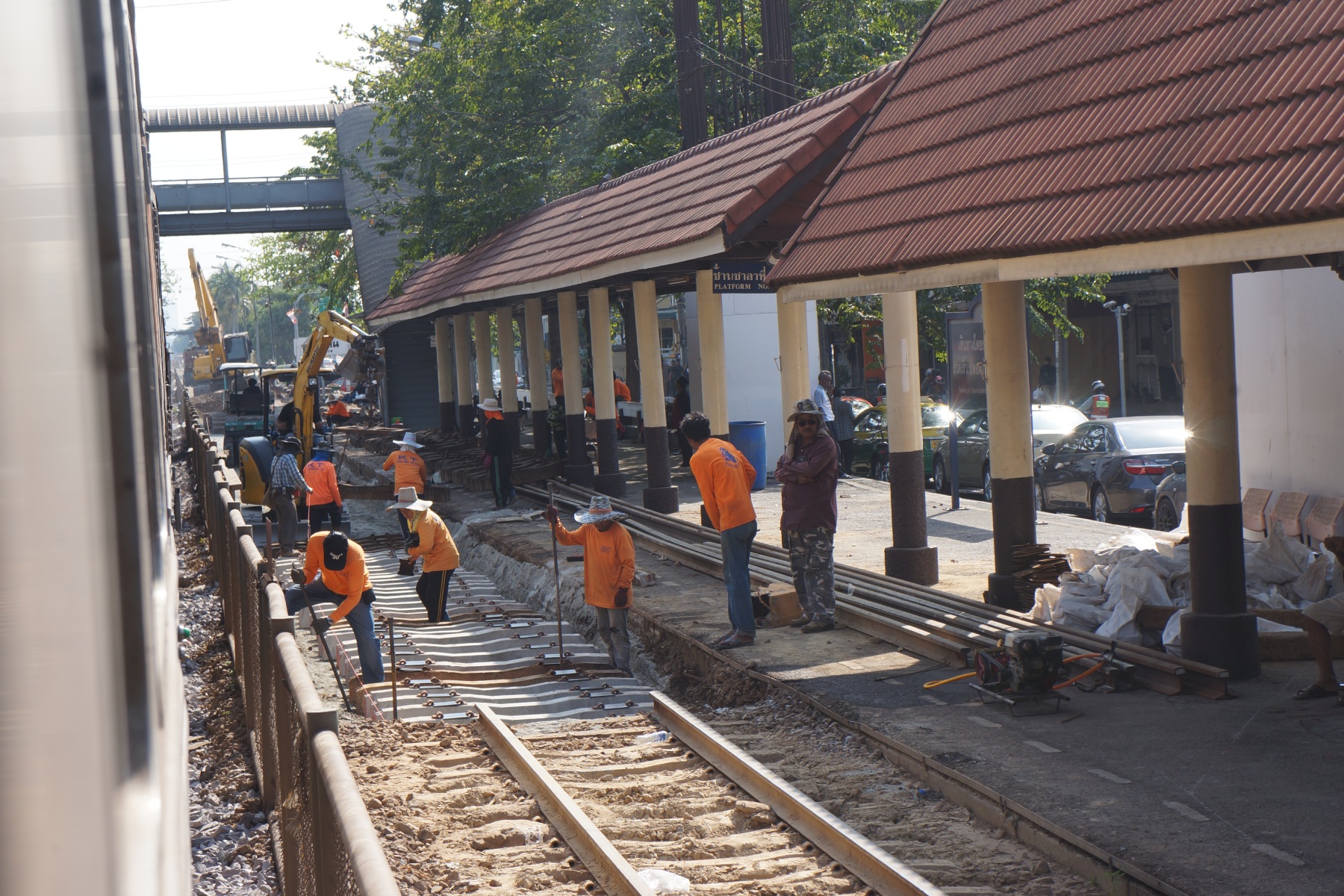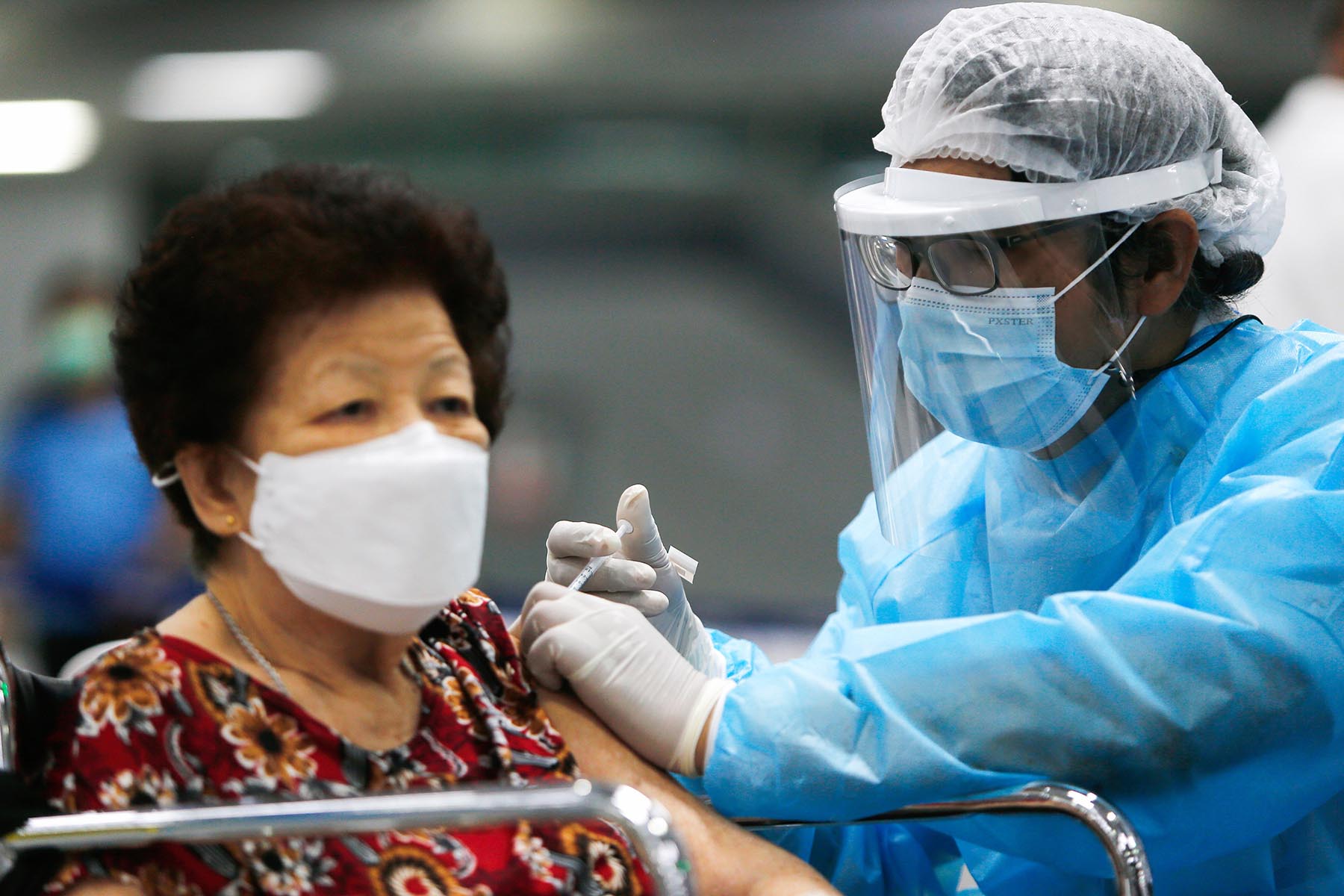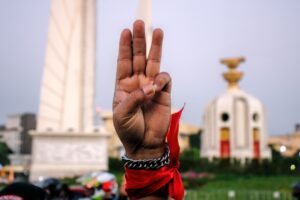Women’s rights in Thailand (ประเทศไทย) have seen significant progress socially, politically, and economically over the years. While the country continues to make legal strides in protecting and uplifting women, there is still much room for improvement in enforcing these laws.
Being a generally conservative country, Thailand has its unique challenges, but women’s rights organizations are actively working to improve the state of gender equality for current and future generations.
Continue reading for more on the following topics:
- Women’s rights and gender equality in Thailand
- What are Thai attitudes towards women?
- Thai laws against harmful practices
- Do women have political rights in Thailand?
- Do women have economic rights in Thailand?
- Women’s healthcare and reproductive rights in Thailand
- Does Thailand give women education rights?
- Are women legally protected from violence and abuse in Thailand?
- Thai family and divorce laws
- Are there any breastfeeding laws in Thailand?
- Representation of women in Thai media, arts, and sports
- Feminism in Thailand
- Women’s rights organizations in Thailand
- Useful resources
Ground News
Get every side of the story with Ground News, the biggest source for breaking news around the world. This news aggregator lets you compare reporting on the same stories. Use data-driven media bias ratings to uncover political leanings and get the full picture. Stay informed on stories that matter with Ground News.
Women’s rights and gender equality in Thailand
Three pieces of legislation address women’s rights (สิทธิสตรี) in Thailand:
- The 2017 Constitution of Thailand states clearly that “men and women shall enjoy equal rights” and that there should be no discrimination on the grounds of sex
- United Nations (UN) Convention on the Elimination of All Forms of Discrimination Against Women, which Thailand signed in 1985
- The 2015 Gender Equality Act, which strengthens anti-discrimination legislation for women in Thailand and also outlaws discrimination against someone based on gender identity

Despite legal gains, barriers to gender equality in Thailand endure. The country is fairly conservative and patriarchal in terms of its norms and practices. Women still have to handle most family care and housework, at three times the rate of their male counterparts, according to UN data. Furthermore, there is still much evidence of domestic violence in Thailand.
Marginalized groups of women can be even more exposed to inequalities and disadvantages. For example, women in rural areas are more likely to experience poverty. Women also over-represent Thailand’s sex trafficking victims and illegally underpaid workers.
What are Thai attitudes towards women?
Thai attitudes towards women are still predominantly conservative and patriarchal. However, you can also find progressive views supporting gender equality, women’s independence, and female leadership.
Many still hold traditional views, such as:
- Men are the head of the household
- Women should be stay-at-home mothers or housewives
- Sons are more highly valued than daughters
However, these views are becoming less common among younger generations.
Thai laws against harmful practices
Thailand has enacted some laws and signed a few international conventions against harmful practices. However, the government has ignored acts like bride kidnapping, polygamy, and female genital mutilation (FGM).
Thailand is one of the most prevalent human trafficking destinations worldwide, with a $12 billion industry. However, the country signed UN conventions for women’s rights and committed to ending child, early, and forced marriage by 2030 in line with the UN Sustainable Development Goals.
Thailand’s 2008 Anti-Trafficking Law (กฎหมายต่อต้านการค้ามนุษย์) criminalizes sex and labor trafficking, with maximum jail sentences of 12 years for trafficking adults and 20 for children. However, both remain widespread, and Thailand ranks as a Tier 2 country in terms of combating trafficking. Although it is making some progress, it comes up short on prosecutions and victim support services.
Although the legal marriage age in Thailand is 20, courts have the power to approve earlier marriages, and Muslim communities may operate according to Islamic law instead. UN data shows that 20.2% of Thai women aged 20–24 were married before 18, and 3% were married before 15.
Do women have political rights in Thailand?
Voting rights for women
Since 1932, women can legally vote in Thailand. This right was enshrined in the country’s first constitution and in time for the democratic national election in 1933. Research has shown that women’s suffrage in Thailand began even earlier than that, with records stating that women voted in local village elections in 1897.
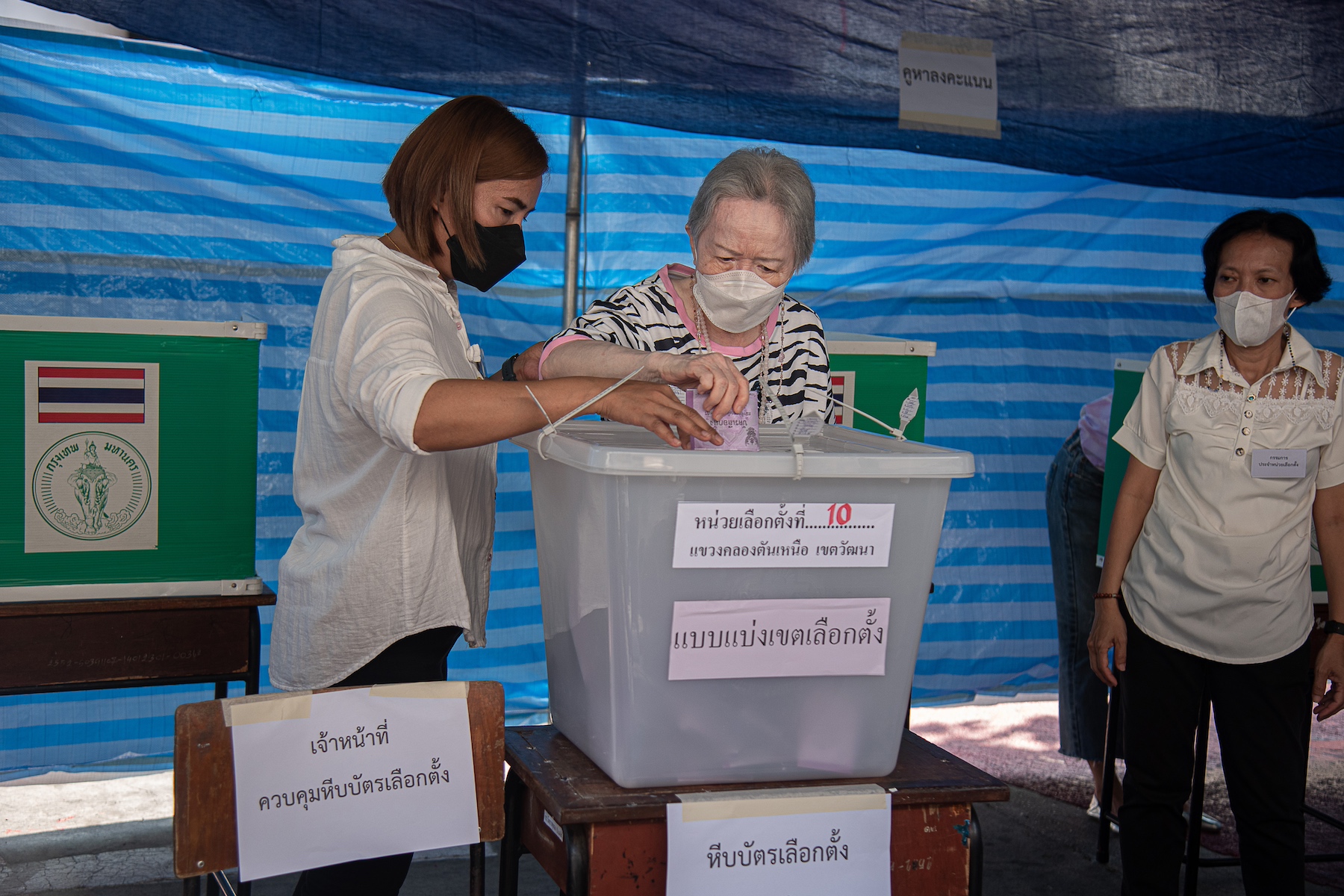
In line with general voting rules, women can vote as long as they are citizens listed in the housing register. If expats have naturalized, they need to hold their citizenship for at least five years on the day of the election.
Women in power
Although women have equal voting rights to men, this hasn’t translated into equal political participation. Thailand ranks 130th out of 146 countries for political empowerment and 122nd of 186 nations for the number of women in parliament. Even though there are several female cabinet ministers in the Thai government, they still hold less than 20% of seats across the House of Representatives, the upper Senate, and local councils.
Thailand has had only one female Prime Minister, Yingluck Shinawatra, who held office between 2011 and 2014.
Do women have economic rights in Thailand?
Employment rights
According to the Thai constitution, women have equal employment rights (สิทธิในการจ้างงาน) to men.
The 2015 Gender Equality Act (พระราชบัญญัติความเท่าเทียมระหว่างเพศ พ.ศ. 2558) and the 2008 Labor Protection Act (พระราชบัญญัติคุ้มครองแรงงาน) prohibit discrimination against women in the workplace. Despite this progress, gender inequality still exists. Only 59% of working-age women were employed in Thailand as of 2020, compared to 76% of men. Furthermore, Thai women earn 10.9% less than men for the same job.
When it comes to senior positions, Thailand fares pretty well. 64.8% of firms have at least one female senior manager (2022). Women in Thailand comprise 32% of senior management positions and 24% of CEOs, above the respective regional averages of 27% and 20%.
However, women in Thailand remain over-represented in insecure employment and overburdened with unpaid work. Thai women do an average of 3.2 hours of unpaid work per day compared with less than 1 hour for men. 65% of Thailand’s informal workers are women, and around half of all working women are considered to be in vulnerable employment.
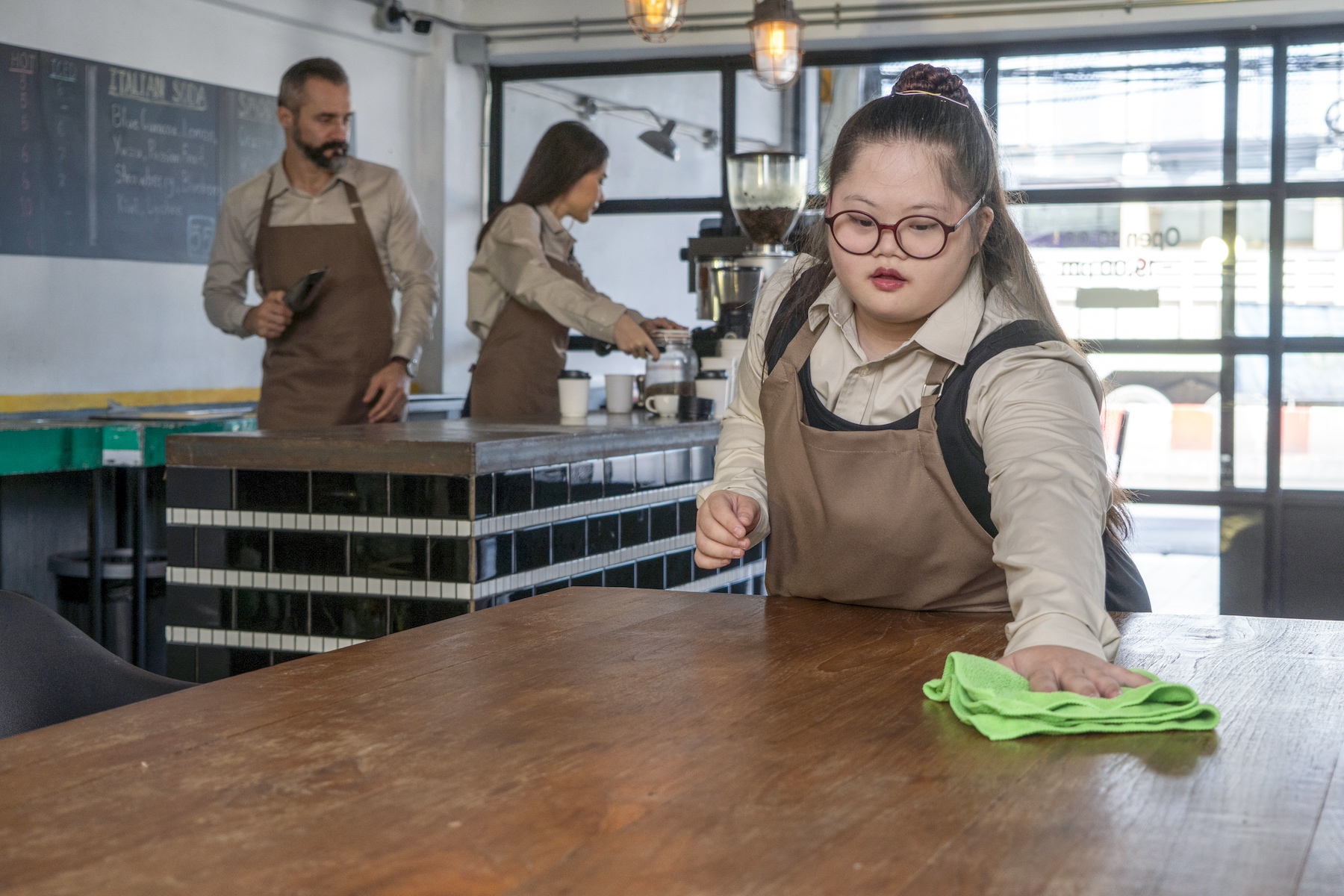
Finally, Thailand’s parental leave (การลาเพื่อเลี้ยงดูบุตร) laws are heavily imbalanced.
New mothers who are government employees are entitled to 90 days’ maternity leave (การลาคลอด). The employer pays for the first 45 days, while the social security system covers the balance.
Public sector workers are also entitled to 15 days’ paternity leave (การลาเพื่อดูแลภรรยาหลังคลอด). However, they must notify a supervisor within 30 days of the birth.
Women in business
Women face no legal restrictions when starting a business in Thailand. In fact, as of 2021, over half of working women in Thailand were self-employed (การทำงานอาชีพอิสระ,). On top of that, almost one-third of firms in Thailand have female-majority ownership.
You can get support from various organizations and networks as a female entrepreneur in Thailand, including Digital Business Women Thailand, the Federation of Business Professional Women Thailand (BPW Thailand), and WE-Can.
Financial and property rights
Women have equal rights to financial services and inheritance and near-equal access to land and other assets in Thailand. There are no legal barriers for women when it comes to opening a bank account, taking out a pension, or getting a mortgage.
Women’s healthcare and reproductive rights in Thailand
Women have an equal right to healthcare (การดูแลสุขภาพ) in Thailand and can access individual health insurance (ประกันสุขภาพ) through citizenship or as an expat employee.
Public health services in Thailand include maternity care (การดูแลคลอดบุตร), sexual and reproductive services (บริการทางเพศและการเจริญพันธุ์) such as birth control, sexual health tests, and cancer screenings.
Thailand fully legalized abortion (การทำแท้ง) in 2020. Women can terminate a pregnancy up to the 12th week or, in certain circumstances, the 20th week. Abortion costs in Thailand are part-funded through public health insurance, and you can take out private coverage to help with the remaining costs.
While abortion has been decriminalized, in reality, it remains difficult for women to seek legal abortion in Thailand. This is due to a lack of doctors willing to perform the procedure, especially outside Bangkok. Religious and cultural beliefs contribute toward making abortion a taboo topic in Thailand.
The maternal mortality rate in Thailand is below both global and regional averages at 29 deaths per 100,000 births in 2020. Teen pregnancy rates are below the worldwide average but well above the regional average. In response, Thailand passed the 2016 Act for the Prevention and Solution of Adolescent Pregnancy to improve teenage bodily autonomy.
Period poverty is a problem in Thailand. The cheapest menstrual pads cost more than 12% of the daily minimum wage.

Local expert
Jane Evans
Tampons are difficult to find, except in tourist areas, and menstrual cups are almost unheard of.
Does Thailand give women education rights?
Thailand grants women full education rights through the Constitution and the 1999 Education Act (พระราชบัญญัติการศึกษา พ.ศ. 2542). Enrollment in school-age education for girls has increased over the past couple of decades, although figures remain lower among marginalized, impoverished, and migrant groups.

However, there are still problems with gendered content within the school curriculum. A 2015 World Bank study of over 500 Thai schools found that women and girls typically occupied inferior and more subservient positions in school textbooks.
Women’s educational attainment in Thailand now outstrips men’s in many areas of higher education. According to the 2022 GGGR, women make up 71.68% of graduates in Thailand. They are the majority of graduates in natural sciences, social sciences, and arts/humanities but a slight minority in ICT. Women also comprise 57% of academics in higher education institutions in Thailand, above global and regional averages (2016).
Are women legally protected from violence and abuse in Thailand?
In Thailand, women have the right to protection from domestic abuse and acts of violence, like rape or assault.
The 2007 Protection of Domestic Violence Victims Act (พระราชบัญญัติคุ้มครองเหยื่อความรุนแรงในครอบครัว พ.ศ. 2550) makes domestic violence a criminal offense in Thailand, giving police more power to act and offering victims greater support.
Perpetrators of violent attacks can receive a jail sentence of up to six months and a fine. In reality, women rarely report rape, perhaps because they fear related examination, investigation, and shame.
The Thai Criminal Code (ประมวลกฎหมายอาญาไทย) details rape laws under sections 276–81. Rape or violent sexual assault can carry a jail sentence of 4–20 years and a heavy fine. This can increase to life imprisonment and even a death sentence if the attack results in a fatality. Marital rape is illegal since 2007.
In reality, many found guilty of violence towards women in Thailand receive reduced sentences for cooperating with law enforcement authorities. Attacks also often go unreported, with one study suggesting this could be as high as 90% with rape cases.
Around 30,000 violence cases against women in Thailand are reported annually to the Ministry of Public Health (MOPH – กระทรวงสาธารณสุข), 9.3% of women aged 15 to 49 reported being victims of physical or sexual violence by an intimate partner (2021).
In the IPSOS study (2023), 30% of Thai respondents said they had seen someone sexually harassing a woman, the highest rate among the 32 nations studied and over double the average (14%).
If you experience or witness violence, you should contact the Thai police immediately. You can also get support from the Thai Women’s Crisis Center by calling their 24/7 hotline at 1300.
Thai family and divorce laws
Thai law states that the minimum marriage (การแต่งงาน) age is 20, which can be lowered to 17 with parental consent or permission of the court.
Either spouse can file for a divorce in Thailand. If the divorce (การหย่า) is mutual and uncontested, it can be done relatively quickly at a local administration office.
Both parties simply sign and complete a form, then pay a small admin fee.
Contested divorces go through the courts and take much longer. The spouse seeking the divorce must also give a reason – for example, infidelity or a separation period of at least three years.

Under Thai law, women have to wait 310 days before remarrying in the event of divorce or the death of their husband. This is an antiquated law to prevent women from marrying while pregnant with a previous partner’s child.
Are there any breastfeeding laws in Thailand?
In 2017, Thailand passed the Infant and Young Child Food Marketing Control Act (พระราชบัญญัติควบคุมการตลาดอาหารสำหรับทารกและเด็กเล็ก พ.ศ. 2560), which aims to promote breastfeeding (การเลี้ยงลูกด้วยนมแม่), increase rates of breastfed newborns, and bring national policies in line with WHO guidelines.
Although breastfeeding rates are currently below average in Thailand, they are rising following policy changes. As of 2023, 29% of mothers now exclusively breastfeed their babies during the first six months.
Breastfeeding discreetly in public is relatively commonplace and socially acceptable in Thailand. There are no national laws regarding breastfeeding breaks in Thai workplaces. However, many companies have return-to-work policies in place that allow for such breaks.
Representation of women in Thai media, arts, and sports
Thailand doesn’t participate in the Global Media Monitoring Project (GMMP), which produces periodic reports on gender inequalities and biases in news reporting. However, the country’s media has teamed up with UNESCO on a project called “Women Make The News” (2017).
This aims to promote the work of female journalists and reporters and challenge previous research showing that “women are most often depicted as victims, family figures, and sex objects in Thai media.”
Thailand has been criticized for its lack of media freedom and restrictions on the rights of the press, which includes the harassment and intimidation of female journalists.
Despite having higher enrollment percentages in arts-based university courses, women are underrepresented in Thailand’s arts and culture industries. At the 2020 Bangkok Art Biennale, Thai males (28.4%) outnumbered female artists (8.6%) by over 3-to-1.

As in most countries, women in Thai sports are often marginalized or overlooked, failing to get the same amount of press as their male counterparts. However, there are signs things are starting to change thanks to the international success of Thai female sports. This includes Atthaya Thitikul, who became the youngest-ever winner of a professional golf tournament at the age of 14 in 2017, and Panipak Wongpattanakit, who won Thailand’s only gold medal in taekwondo at the Tokyo Olympics.
Feminism in Thailand
The feminist movement in Thailand has historically worked closely with other human rights and pro-democracy groups and tried to link the struggle for gender equality with broader societal struggles.
Early groups, such as the Women’s Association of Siam, founded in 1932, focused more on improving the status of middle-class and elite women. It wasn’t until the 1960s and 70s that groups emerged that recognized themselves as feminists.
An essential organization from this time was the Association for the Promotion of Status of Women (APSW – สมาคมส่งเสริมสถานภาพสตรี ), founded in 1970 to campaign for equal rights and social justice for women.
Many of those involved with APSW had been active in civil rights struggles throughout the sixties, continuing to the 1973 Student Uprising against the government. The APSW advocated for improved marriage and property rights and providing shelters for domestic violence victims.
Today’s Thai feminists are also at the forefront of the country’s pro-democracy movement, with groups like Women for Freedom and Democracy leading the fight for abortion rights and protesting against broader human rights restrictions.
Although patriarchal attitudes are still widespread in Thailand, many people support the feminist movement. According to the 2023 IPSOS study on public attitudes, 55% of Thais consider themselves feminists.
Women’s rights organizations in Thailand
Women’s organizations operating in Thailand include:
- ACWC Thailand (คณะกรรมาธิการอาเซียนว่าด้วยการส่งเสริมและคุ้มครองสิทธิสตรีและสิทธิเด็ก)
- Association for the Promotion of Status of Women (APSW – สมาคมส่งเสริมสถานภาพสตรี)
- EMPOWER (มูลนิธิเอ็มเพาเวอร์)
- Foundation For Women (มูลนิธิผู้หญิง)
- Pratthanadee Foundation (มูลนิธิกลุ่มปรารถนาดี)
Useful resources
- 2015 Gender Equality Act – tightens anti-discrimination laws against women in Thailand
- UN Women – data on gender inequality in Thailand
- Global Gender Gap Report (GGGR) – global rankings and country information on gender gaps in economic, political, and social areas


